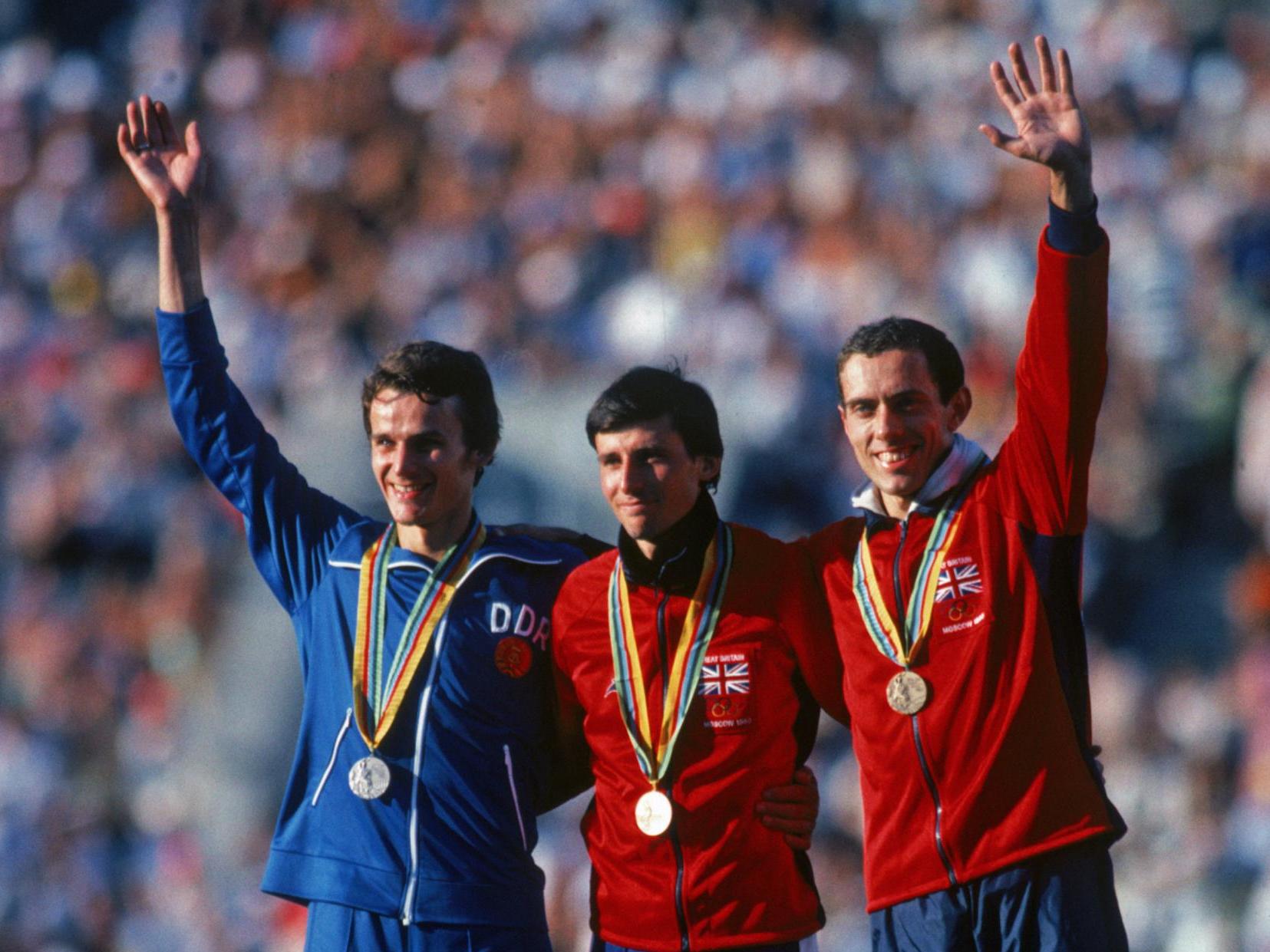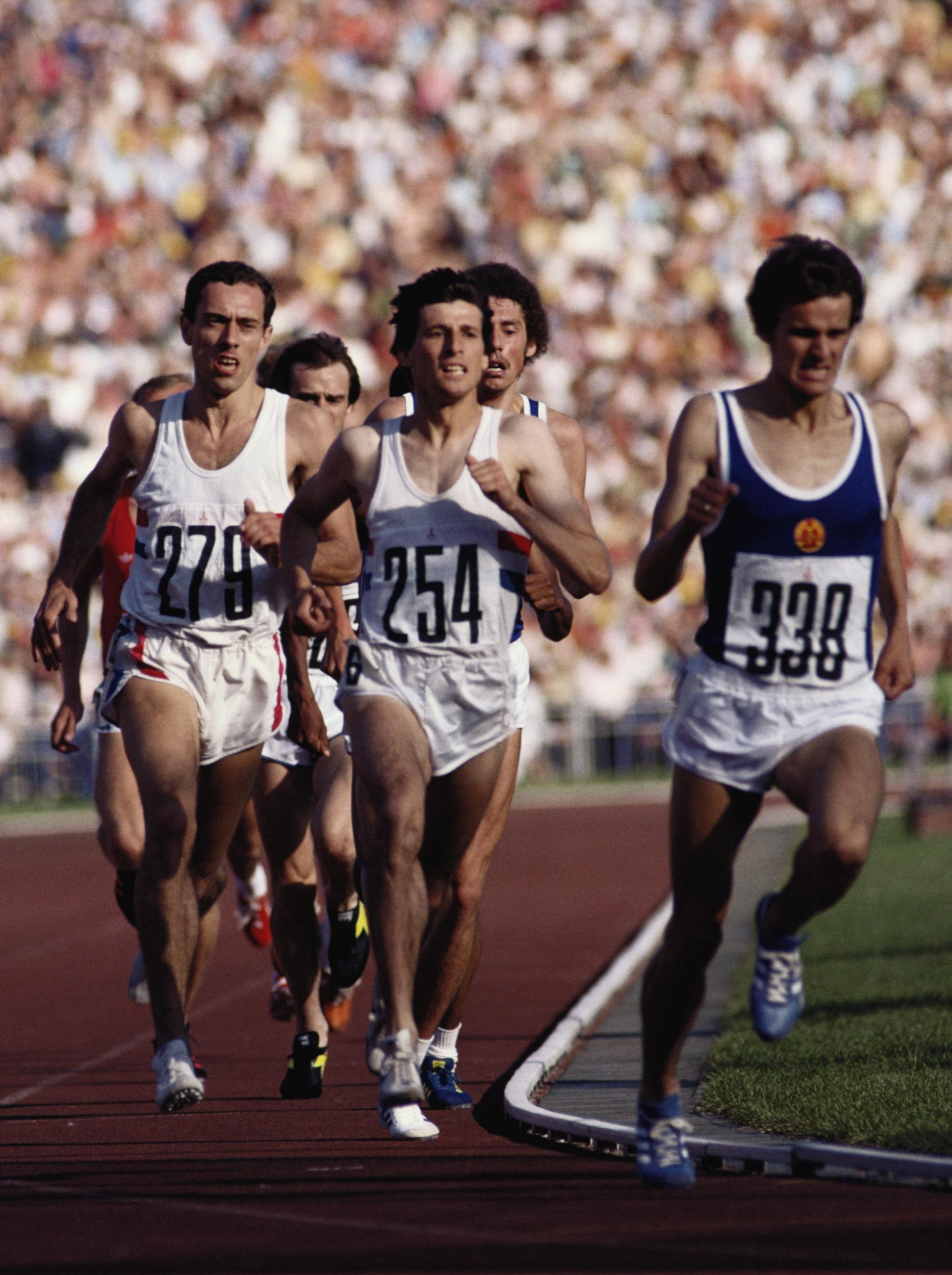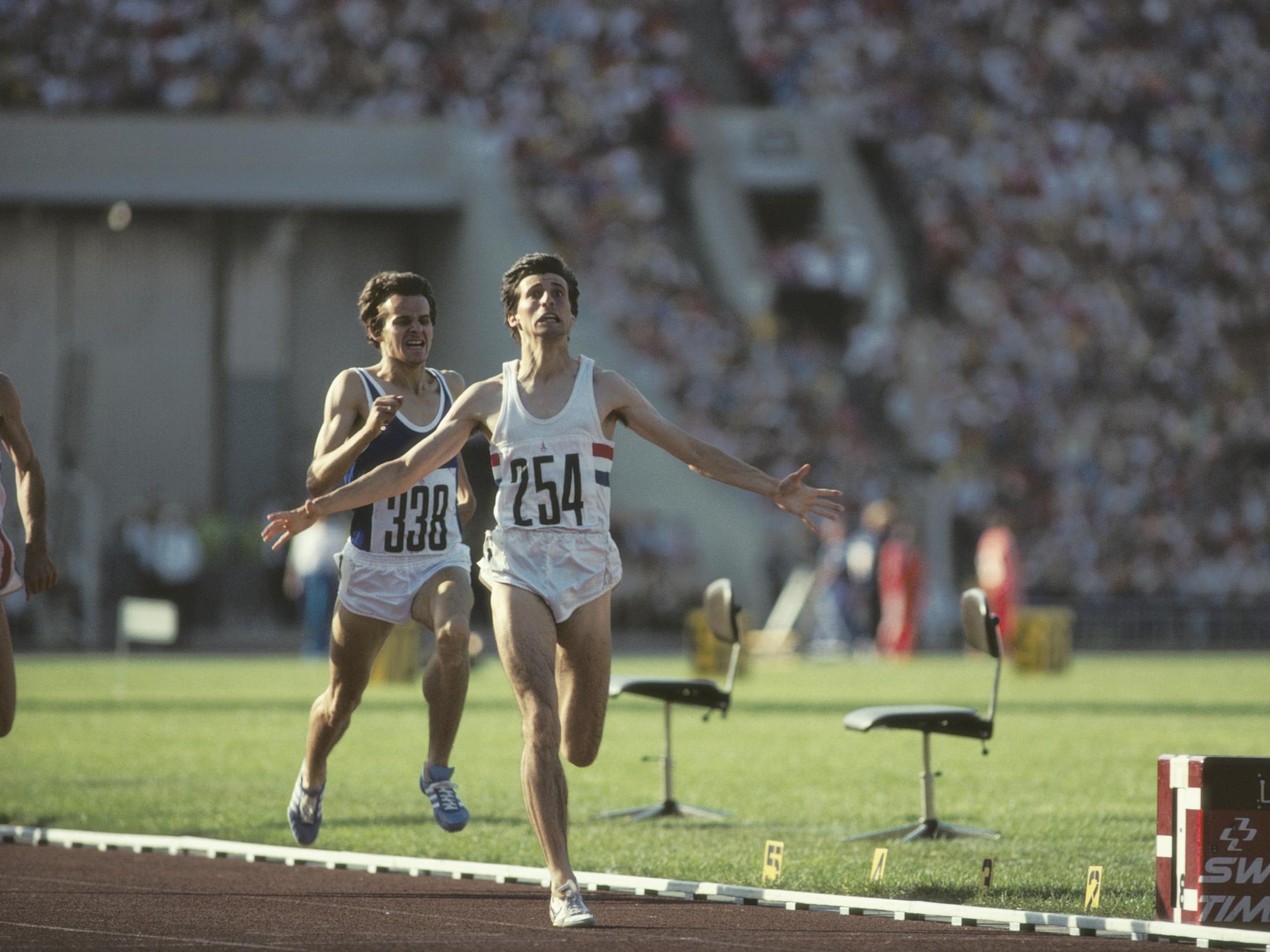The lessons the 1980 Olympics can teach athletes today
Thousands of athletes who were preparing for Tokyo later this summer are now facing an uncertain future. Sebastian Coe explains how their best next move may be to look to the past


Your support helps us to tell the story
From reproductive rights to climate change to Big Tech, The Independent is on the ground when the story is developing. Whether it's investigating the financials of Elon Musk's pro-Trump PAC or producing our latest documentary, 'The A Word', which shines a light on the American women fighting for reproductive rights, we know how important it is to parse out the facts from the messaging.
At such a critical moment in US history, we need reporters on the ground. Your donation allows us to keep sending journalists to speak to both sides of the story.
The Independent is trusted by Americans across the entire political spectrum. And unlike many other quality news outlets, we choose not to lock Americans out of our reporting and analysis with paywalls. We believe quality journalism should be available to everyone, paid for by those who can afford it.
Your support makes all the difference.The 1980s was perhaps the most politically charged decade in the history of sport, all of which began on Christmas Eve 1979 with the invasion of Afghanistan by the Soviet Union.
You can imagine a thrusting, ambitious spin doctor sitting in the resplendent inner sanctum of the Kremlin and advising his political bosses that this was a good day to bury bad news.
In less salubrious surroundings, I remember sitting at home in Sheffield watching it unfold on television with scant recognition about just how far the ripples of this particular pebble would extend. A month later, US President Carter issued an ultimatum that lit the diplomatic blue touch paper. If the Soviet troops weren’t heading back to base by the end of February, the US would boycott the Olympic Games of 1980.
By early March, Carter had confirmed the boycott and deemed it an article of faith that the other western democracies would follow suit. In retrospect it was no great surprise that the recently elected British Prime Minister Margaret Thatcher supported the boycott, thus reaffirming the “special relationship” between the two nations that had been watered down under previous administrations.
As a freshly minted political science graduate, the manoeuvring of government either side of the Atlantic began to twitch my antennae. As a middle-distance runner, holder of three world records and pre-selected for the Olympic Games, it threw a toxic ingredient into the mix for me.
The months before the Olympic Games are the most intense an athlete will ever face in their career. Everything you do in preparation - your training programme, the choice of competitions, even where you live is predicated in reaching a peak during a few days in July or early August.

In reality, the closer you get to the field of play, those days are distilled into critical minutes. The Damocles threat of a boycott - and with it the chilling prospect that a decades worth of intense ambition to compete on the world’s biggest stage, the Olympic Games, may not be realised - was unthinkable. But think about it I did. It was the first and last thought in my day; a grumbling appendix.
The uncertainty was unsettling. Setting off to the track for another punishing session knowing it would render you speechless for an hour or so after. The same on the road and in the weight room. That was my soundtrack for a decade. But no masterful compartmentalising could reduce the current spectre of a withdrawal.
Fortunately, public opinion in Britain gradually began to shift. Sport had emerged as the culture of the masses, and the masses in the UK wanted to see their athletes at the greatest show on earth. In 1980, that meant Moscow. The British Olympic Association stood tall and independent in the face of political pressure. The decision was made to go.
It is often said that you never truly miss something until it’s no longer there. Even now, looking back from the heights of an Olympic silver and gold medal in Moscow, I still break out in a cold sweat about not making it to the Russian capital. I was one of the lucky ones.
A golden generation of Herculean Olympians from the US were not. Some of them never made it to another games, others even left Olympic disciplines for largely unfulfilled tilts at other sports. So spare a thought for this year’s crop of Olympians and Paralympians who only a handful of weeks ago had their dreams ripped asunder when Tokyo 2020 was inevitably postponed in the face of this global pandemic.

Yes, some will hold on for another year, leaning heavily on a suffusion of talent and resilience to take part in the Japanese capital a year down the track. Many, though, will not because age and the ever-present threat of injury will take its toll. There is of course one big difference between the class of 1980 and 2020. When I stepped out of the front door to trudge the streets of my home city of Sheffield with a constant niggling doubt that it may all come to nothing, I didn’t have the additional fear that my daily grind ran the risk of serious, possibly fatal infection and by implication leaving family and loved ones also in the line of fire. That’s the difference and it’s a big one.
Athletes who reach the Olympic level are a tough breed. They have to be. They labour hours a day and put everything else in their world on hold. If age is on their side, they avoid injury and they have smart thoughtful coaches who will help them regroup mentally and physically.
My advice to them while their careers are temporally paused, is to use the unexpected time when not maintaining peak fitness to nourish their soul by going online and unearthing the personal odysseys of athletes past who have had to overcome unimaginable adversity to keep their dreams intact. To spend that time becoming students of their sport, specifically their chosen disciplines within it. By the time I reached my early 20’s, I had read pretty much every biography of the great milers. Had I not I wouldn’t have stumbled across the anguish of the great US athlete Jim Ryan who went to the Munich games in 1972. He entered the first-round of the 1500 metres as the silver medallist from Mexico four years earlier and the reigning mile world record holder. Less than two laps into his heat he was tripped. His Olympic career ended that day.
When I lost the 800 metres in Moscow to fellow countryman Steve Ovett, I took comfort from the knowledge that unlike Ryan I had another chance to step onto the Olympic stage this time in the 1500 metres. I took that chance. This is the time for all the currently dispossessed to reach for the history books. It will serve them well.
Sebastian Coe is Executive Chairman at CSM Sport & Entertainment (www.csm.com)
Join our commenting forum
Join thought-provoking conversations, follow other Independent readers and see their replies
Comments